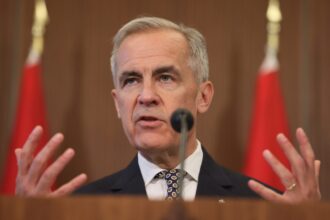A troubling pattern has emerged across Alberta’s healthcare landscape, where mounting financial pressures are forcing residents to make difficult choices between their health and their wallets. According to a comprehensive new report released yesterday by the Alberta Health Quality Council, nearly one in four Albertans has postponed seeking necessary medical treatment due to associated costs—a trend that experts warn could have serious long-term implications for public health outcomes.
The report, which surveyed over 3,000 residents across the province, reveals that despite Canada’s universal healthcare system, many Albertans face significant financial barriers when accessing care. Prescription medications, dental services, and mental health support remain particularly problematic, with costs exceeding what many families can reasonably afford during a period of economic uncertainty.
“What we’re seeing is a concerning reality where healthcare isn’t truly universal for all Albertans,” explains Dr. Marian Sherwood, lead researcher on the study. “When 24% of respondents report delaying or avoiding treatment due to financial constraints, we need to acknowledge this represents a serious gap in our system.”
The financial burden appears particularly acute for vulnerable populations. Low-income families, seniors on fixed incomes, and those with chronic conditions requiring ongoing medication report the highest rates of care postponement. For many, the decision to delay treatment isn’t made lightly—it’s often a desperate calculation between immediate financial survival and long-term health needs.
James Turner, a 58-year-old Calgary resident interviewed for this report, described rationing his heart medication to make prescriptions last longer. “I’ve got to stretch my pension somehow,” Turner explained. “Some months it’s either medication or groceries, and you can’t live without food.”
Healthcare economists point to several contributing factors exacerbating the situation. Alberta’s pharmaceutical coverage programs remain less comprehensive than those in provinces like British Columbia and Ontario. Additionally, dental and vision care continue to exist largely outside the public system, creating significant gaps for those without private insurance.
According to the Alberta Medical Association, these delays often lead to more severe health conditions that ultimately cost the system substantially more. Dr. Rachel Ahmed, health policy analyst at the University of Alberta, notes that “preventive care is consistently more cost-effective than emergency intervention. When patients delay seeking treatment for financial reasons, we often see them return with more complex, expensive conditions that could have been prevented.”
Provincial officials have acknowledged the findings but point to ongoing initiatives aimed at expanding coverage. Health Minister Jason Copping stated yesterday that the government is “actively reviewing opportunities to enhance affordability,” though specific policy changes remain under consideration rather than implementation.
The report comes amid broader national discussions about healthcare funding and the potential expansion of public coverage to include pharmacare and dental services. While federal proposals have been debated, provincial implementation remains inconsistent across Canada.
Patient advocacy groups have called for immediate action, arguing that delays in addressing these barriers will only compound public health challenges. Sarah Livingston of the Alberta Patient Advocacy Network described the situation as “an invisible crisis” where people suffer quietly rather than seeking the care they need.
“We hear daily from Albertans making impossible choices—skipping specialist appointments because they can’t afford the time off work, cutting pills in half to extend prescriptions, or putting off procedures until the pain becomes unbearable,” Livingston said.
Healthcare providers also report increasing frustration with the system. Family physician Dr. Thomas Chen expressed concern about the downstream effects of delayed care: “I’m seeing patients who have let manageable conditions deteriorate because of cost barriers. By the time they come in, what might have been a simple treatment has become a complex medical challenge.”
As economic pressures continue to affect households across the province, the question remains: can Alberta afford to maintain a healthcare system where financial barriers force residents to compromise their wellbeing, or is it time for comprehensive reform that truly delivers on the promise of universal access?

























